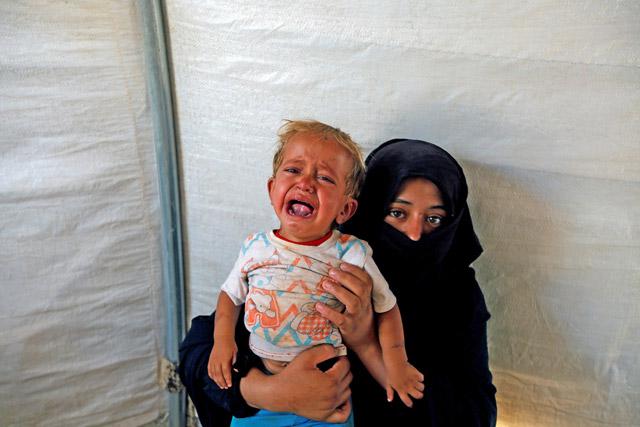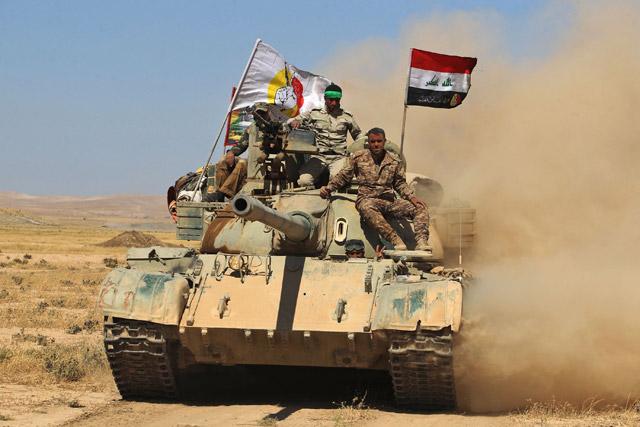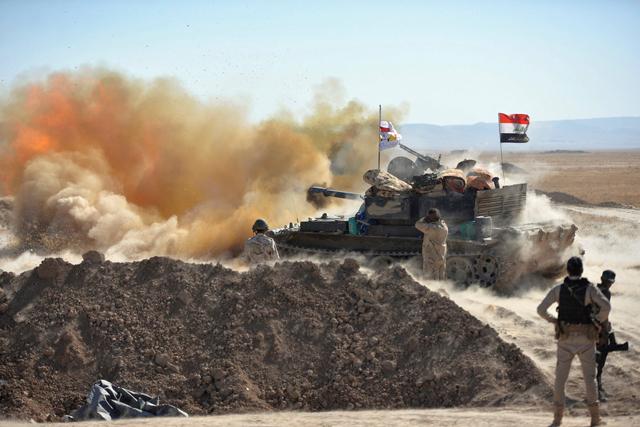You are here
Camp awaits displaced from Iraq’s Tal Afar as battle nears end
By AFP - Aug 27,2017 - Last updated at Aug 27,2017
BADUSH, Iraq — Badush camp, set up for civilians who escaped the Tal Afar battle between Iraqi forces and the Daesh terror group, stands almost empty but for a handful of displaced residents, doctors and guards.
The rows of tents erected for the displaced from the northern Iraqi city remain virtually empty.
Iraqi authorities and aid groups set up the camp, 150 kilometres southeast of Tal Afar, to host those displaced from the last major battle in the northern province of Nineveh.
Army, police and units of the Hashed Al Shaabi paramilitary coalition launched an offensive on August 20 to seize the city, having ousted Daesh from Iraq's second city Mosul in July.
On the sixth day of the operation, Iraqi forces announced on Saturday the recapture of central Tal Afar and its historic Ottoman-era citadel, placing them on the verge of fully retaking one of the last Daesh strongholds in the country.
General Jabar Mustafa Hassun, from a committee dealing with the displaced, said civilians had been arriving at the camp — but that was before the launch of the battle.
Tal Afar had 200,000 residents before the extremist group seized it in July.
In the weeks prior to the offensive on Tal Afar, up to 90,000 people were still in the city 70 kilometres west of Mosul, according to Hassun.
The United Nations said this week that around 30,000 civilians were still trapped in the fighting.
Hassun said that "10 days ago, 4,000 to 6,000 civilians were arriving each day in the camps", but that number had fallen to "150 or 200 a day, sometimes just 50".
The displaced from Tal Afar apparently left in different directions, some of them arriving in Badush, but then passing through and carrying on to other camps.
He estimated only around 160 families are left in Tal Afar, most of them the families of Daesh fighters.
During the fight for Mosul, the outflow of displaced people far exceeded predictions by aid groups, unlike in the case of Tal Afar which has seen no such mass exodus.
Issa Hassan, 72, was seated in a tent held erect by four poles, sheltering from the blistering sun.
The white-bearded man said he arrived this week from Al Khan, a village near Tal Afar where he had taken refuge two years ago.
"I originally come from the Al Jazeera district of Tal Afar," said Hassan, who had sent his four wives ahead of him to a camp near Mosul before selling his herd of goats and heading off.
Related Articles
MOSUL, Iraq — A senior Iraqi general predicted a relatively easy victory for his forces in the upcoming battle for the Daesh terror group ha
TAL AFAR AIRBASE, Iraq — Iraqi forces on Sunday pounded the Daesh terror group in Tal Afar, one of its last bastions in the country, in a ne
TAL AL HESSAN, Iraq — Iraqi forces closed in Monday on Tal Afar on the second day of an offensive against the last major bastion of the Daes














